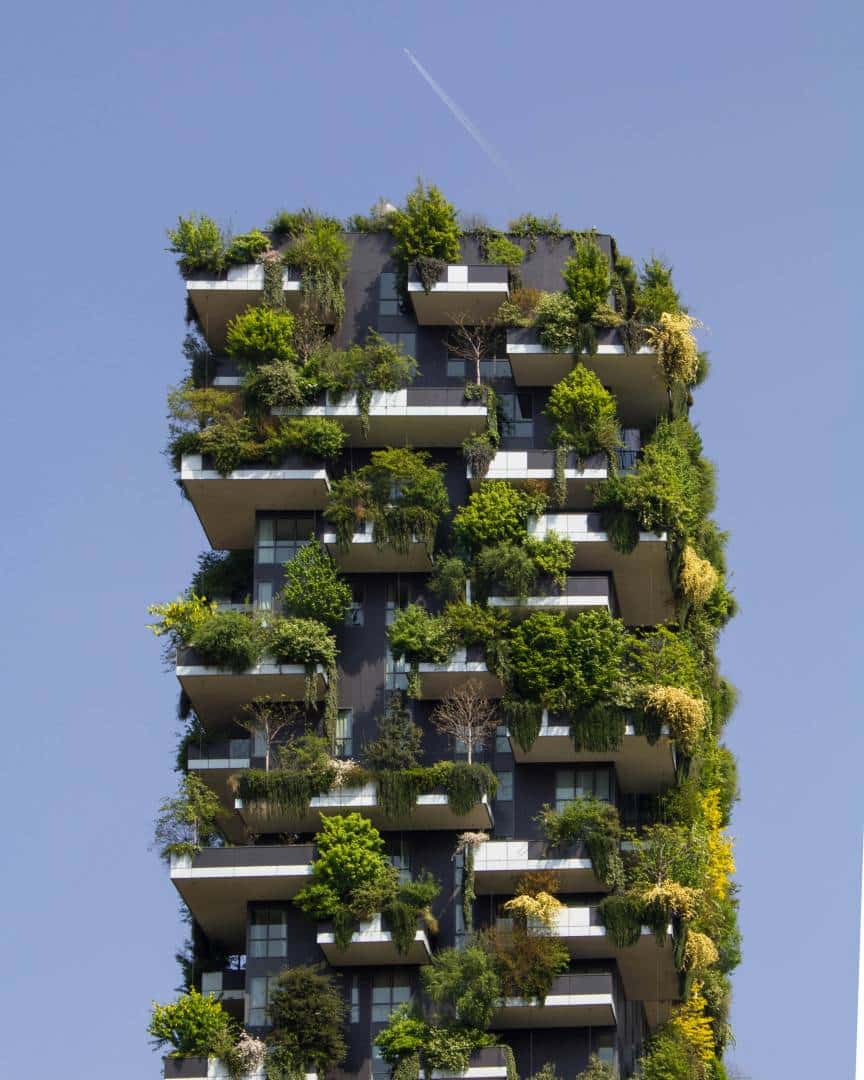In today’s world, where awareness of the importance of sustainability is continuously growing, modern architecture is not only following this global trend but also actively contributing to its shaping. Sustainable architecture, focused on minimizing the negative impact on the environment, has become not just an option but a necessity in the world of construction.
This approach encompasses design considerations for energy efficiency, the use of renewable energy sources, and waste reduction, increasingly recognized as key to preserving our planet.

Energy efficiency is the cornerstone of sustainable architecture, where innovative architectural designs maximize natural light and ventilation. This reduces dependence on artificial lighting and air conditioning, leading to significant energy savings. The inclusion of advanced technologies, such as solar panels and intelligent energy management systems, further enhances this efficiency.
The use of sustainable materials in construction is becoming increasingly important. Materials such as recycled steel, sustainable wood, bamboo, and innovative composite materials reduce the ecological footprint of buildings. These materials are not only environmentally friendly but often offer better insulation, durability, and weather resistance.
The integration of green spaces in architecture, such as rooftop gardens, green walls, and vertical gardens, not only enhances the aesthetics of buildings but also provides ecological benefits. These features contribute to improving air quality, reducing urban heat islands, and promoting urban ecosystems. Sustainable architecture also includes creating spaces that promote communal living and social interaction, such as public parks and spaces for communal activities. Faced with the global challenges of climate change, sustainable architecture emerges as a key element in combating these changes.
Through its innovative approaches in design and construction, it contributes to reducing greenhouse gas emissions, provides solutions for adapting to changing climatic conditions, and encourages sustainable urban development.

Innovative approaches in sustainable architecture increasingly include concepts such as smart cities and cities of the future. These concepts are based on the integration of technology and sustainability, creating urban spaces that are not only environmentally friendly but also maximally functional and tailored to the needs of residents. Technologies like IoT (Internet of Things) enable the connection and automation of various systems within buildings, from energy efficiency to waste management, thereby raising the quality of urban life.
Within these advanced practices, there is also a strong focus on adaptive reuse and conversion of existing buildings. This not only reduces the need for new construction and its associated environmental impact but also contributes to preserving cultural heritage and historical structures. Converting old buildings into modern, energy-efficient spaces is a key aspect of sustainable urbanization.
A remarkable innovation within sustainable architecture is the concept of vertical forests – buildings covered with plants and trees. These buildings are not only visually impressive but make a significant contribution to air purification, noise reduction, and promoting biodiversity in urban environments. They represent a symbiosis of nature and modern construction, demonstrating how architecture can actively contribute to environmental improvement.
Through such innovations, sustainable architecture not only sets new standards in construction but also actively changes the way we think about urban spaces, their functionality, and aesthetics. It is a roadmap to a sustainable future, where architecture and nature do not exist as separate entities, but as a harmonious whole shaping our daily lives.
For more information on sustainable architecture and how to apply it in your projects, contact our team of experts today!

